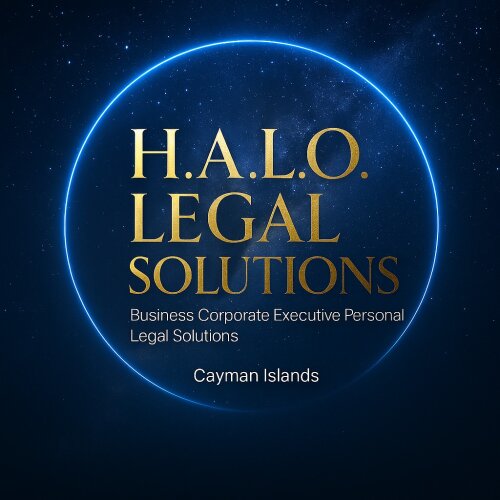Best Public-Private Partnerships (PPP) Lawyers in Cayman Islands
Share your needs with us, get contacted by law firms.
Free. Takes 2 min.
Or refine your search by selecting a city:
List of the best lawyers in Cayman Islands
About Public-Private Partnerships (PPP) Law in Cayman Islands
Public-Private Partnerships, commonly known as PPPs, are collaborative agreements between governmental bodies and private sector entities designed to finance, construct, and operate projects or services that traditionally fall within the realm of the public sector. In the Cayman Islands, PPPs have become increasingly important as the government seeks to leverage private sector expertise and resources for public infrastructure and service delivery. These partnerships help drive economic growth and enhance public services by sharing risks and rewards between both sectors.
Why You May Need a Lawyer
Navigating Public-Private Partnerships in the Cayman Islands can be complex due to the unique legal, financial, and operational frameworks required. You may need a lawyer in situations such as:
- Drafting and negotiating PPP agreements
- Ensuring compliance with local PPP regulations and procurement laws
- Managing risk allocation and dispute resolution mechanisms
- Advising on project financing structures and public sector obligations
- Conducting due diligence on project feasibility and regulatory compliance
- Representing interests in cases of conflict or contract termination
- Navigating land use, zoning, and environmental regulations for project sites
- Protecting intellectual property and proprietary technologies introduced by private partners
- Addressing tax, accounting, and investment requirements
- Advising on cross-border elements in international PPP projects
Legal advice ensures your interests are protected and the partnership is structured for long-term success.
Local Laws Overview
The legal framework governing Public-Private Partnerships in the Cayman Islands has been shaped to promote transparency, accountability, and efficiency. Key aspects include:
- The Framework for Fiscal Responsibility (FFR): This sets out requirements for good governance, value for money, and financial risk management in public sector projects, greatly affecting PPP approval and oversight.
- Procurement Laws: The Procurement Act and related regulations provide guidelines for transparent and competitive selection of PPP partners, ensuring fairness and public accountability.
- Government Contracts: Model contracts and best practices are encouraged, balancing the interests of the public with those of private investors.
- Environmental and Planning Laws: All PPP projects must receive environmental and planning approvals ensuring compliance with local standards.
- Foreign Investment Considerations: Non-resident or overseas entities must comply with the Trade and Business Licensing laws and, where applicable, the Local Companies (Control) Act.
- Dispute Resolution: Many PPP contracts specify mechanisms such as arbitration or mediation, supported by Cayman Islands legislation on alternative dispute resolution.
The government is committed to attracting investment while safeguarding public interest through robust legal oversight and clear frameworks for collaboration.
Frequently Asked Questions
What is a Public-Private Partnership (PPP) in the Cayman Islands?
A PPP is a formal arrangement where the Cayman Islands Government collaborates with private sector businesses to deliver public infrastructure projects or services, sharing responsibilities, risks, and rewards.
Which types of projects in the Cayman Islands commonly use PPP structures?
Typical PPP projects include transportation infrastructure, hospitals, schools, waste management facilities, power and water plants, and urban redevelopment.
Are there specific legal requirements for establishing a PPP?
Yes. PPPs are subject to the Framework for Fiscal Responsibility, government procurement requirements, environmental planning approvals, and contract approval processes.
How does the government select private partners for PPP projects?
The selection is made through competitive and transparent tenders governed by local procurement laws to ensure fair opportunity and the best value for public funds.
What are the main risks associated with PPPs in the Cayman Islands?
Key risks include project delays, cost overruns, regulatory changes, contractual disputes, and challenges in securing financing or approvals.
Can foreign companies participate in PPPs?
Yes. Foreign investors may participate, but must comply with relevant business licensing and investment laws, and may need a local partner depending on the sector and project.
How are disputes in PPPs resolved?
Disputes are generally managed through contractual dispute resolution clauses, often including mediation or arbitration, which are supported by the local courts when necessary.
What role does government oversight play in PPPs?
Government oversight ensures compliance with legal, financial, and operational standards, and ongoing monitoring of the project's progress and performance.
Are there incentives for private sector involvement in PPPs?
Incentives may include flexible contract terms, availability payments, revenue guarantees, or tax concessions, depending on the project's scale and significance.
Do I need a lawyer before entering a PPP agreement?
It is highly advisable to engage a lawyer before entering any PPP agreement to review contracts, assess risks, ensure compliance, and protect your interests throughout the process.
Additional Resources
For individuals or businesses interested in Public-Private Partnerships in the Cayman Islands, the following resources may be helpful:
- Ministry of Finance and Economic Development - Oversees PPP policy and framework implementation.
- Central Procurement Office - Provides procurement guidelines, tender opportunities, and procedures for public projects.
- Cayman Islands Government Gazette - Publishes official notices regarding PPP projects and statutory approvals.
- Department of Commerce & Investment - Offers information on business licensing, investment criteria, and support for foreign and local investors.
- Legal Practitioners in the Cayman Islands - Many law firms specialize in infrastructure, government contracts, and PPP law.
Next Steps
If you are considering participating in or advising on a Public-Private Partnership project in the Cayman Islands, follow these steps:
- Outline your project concept or interest and gather all relevant documentation.
- Consult with a legal practitioner skilled in Cayman Islands PPP law and government procurement processes.
- Request an initial legal consultation to assess your eligibility, obligations, and any regulatory hurdles.
- Work with your lawyer to draft, review, and negotiate all partnership and contract terms.
- Ensure ongoing legal compliance and monitor project milestones with professional assistance as required.
Taking early legal advice is essential for protecting your investment, fulfilling public sector requirements, and ensuring a successful partnership outcome.
Lawzana helps you find the best lawyers and law firms in Cayman Islands through a curated and pre-screened list of qualified legal professionals. Our platform offers rankings and detailed profiles of attorneys and law firms, allowing you to compare based on practice areas, including Public-Private Partnerships (PPP), experience, and client feedback.
Each profile includes a description of the firm's areas of practice, client reviews, team members and partners, year of establishment, spoken languages, office locations, contact information, social media presence, and any published articles or resources. Most firms on our platform speak English and are experienced in both local and international legal matters.
Get a quote from top-rated law firms in Cayman Islands — quickly, securely, and without unnecessary hassle.
Disclaimer:
The information provided on this page is for general informational purposes only and does not constitute legal advice. While we strive to ensure the accuracy and relevance of the content, legal information may change over time, and interpretations of the law can vary. You should always consult with a qualified legal professional for advice specific to your situation.
We disclaim all liability for actions taken or not taken based on the content of this page. If you believe any information is incorrect or outdated, please contact us, and we will review and update it where appropriate.
Browse public-private partnerships (ppp) law firms by city in Cayman Islands
Refine your search by selecting a city.
















